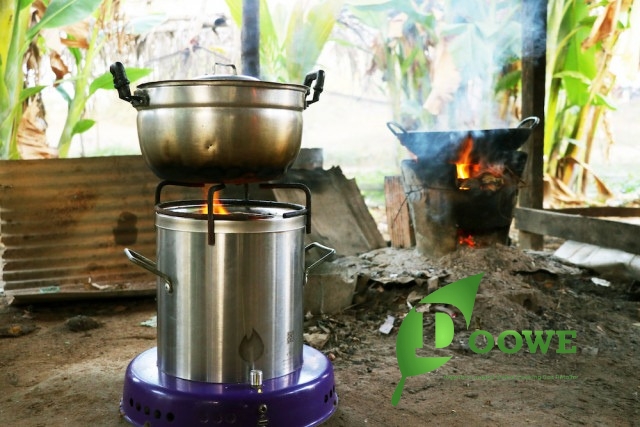In India, Indonesia, China, parts of Africa and developing nations around the world, many women are spending hours every day cooking over flames fueled by wood, charcoal, animal dung or kerosene. In order to feed themselves and their families, they are exposed to deadly air pollutants produced by these fuels.

According to the World Health Organization (WHO), people in households that use solid fuels for cooking make up 40 percent of the world population. That means about 2.9 billion people are exposed to indoor air pollution every day.
The exposure results in the premature deaths of an estimated 4 million people annually from lung cancer, cardiovascular disease, pneumonia and chronic obstructive pulmonary disease, according to the World LPG Association (WLPGA). The majority of people affected are the poorest members of developing nations.

Women and children have a higher risk of health complications due to indoor air pollutants, as they spend the most time in and around the home. Burning solid biomass – organic matter produced from plants and animals such as wood, charcoal or animal dung – for fuel also contributes to deforestation, soil degradation and global warming. The Cooking for Life campaign was started in 2012 with the goal of transitioning 1 billion people from cooking with traditional fuels to clean-burning propane by 2030. According to the association, this will prevent 500,000 premature deaths a year and save about 6.6 million acres of forest for every 268 million households that convert.
According to WLPGA, other health benefits include improved quality of life as a result of less human suffering, a reduction in health-related expenditures, the value of productivity gains that result from less illness and fewer deaths, and lower risk of kerosene poisoning.
Women and girls also face health and safety risks associated with fuel collection, according to WHO.

“In some countries in sub-Saharan Africa and Asia, women and girls spend four, five, six hours a day looking for wood, and that’s when they’re attacked, and they’re raped, or they’re bitten by snakes,” Kelly says.
Fuel gathering also places significant constraints on available time for education, rest and income-generating activities, WHO says. When they don’t have to look for fuel, women and girls can spend that time in more productive ways. Additionally, because propane is more efficient, overall cooking time goes down, further adding to the time savings.

According to Kelly, no matter how the transition is being encouraged, appropriate laws and adequately enforced regulations are the single most critical factor in whether widespread access to and use of propane can be achieved and sustained for the long term.
“It does take recognition at the national level to address the problem,” Kelly says. “In Mozambique, where we did a workshop last year, something like 80 percent of the country cooks on charcoal and the country is being deforested at an accelerated rate and so the government has outlawed the transportation of charcoal … so that led to a spike growth of the LPG industry.”



